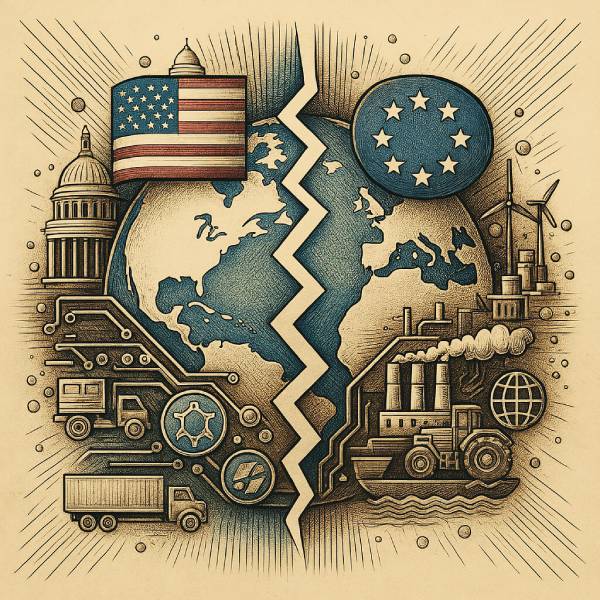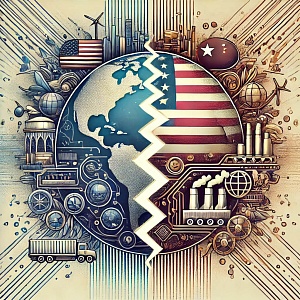US – Euro Trade Relations
As an American student living in Europe and pursuing an International MBA at ISM, I’ve had the unique opportunity to witness the growing economic tensions between the U.S. and the European Union from both sides of the Atlantic.

The recent tariff escalations between these two economic giants – sparked by the U.S. imposing a 25% tariff on steel and aluminum and the EU’s €26 billion response – are causing all kinds of tensions across global markets, affecting industries, businesses, and consumers alike.
Many international ambassadors from this side of the Atlantic have spoken out about their concerns. As Cecilia Malmström, former EU Trade Commissioner, has stated, this is an "escalating conflict" where there are no real winners. "It’s a lose-lose game," she said, emphasizing that higher prices will affect inflation, jobs, and economic growth. This perspective is widely shared by economists, as tariffs introduce instability in supply chains, making everything from manufacturing to retail more expensive and uncertain.
From a global trade perspective, the transatlantic relationship is one of the most crucial in the world, with a combined trade value of €1.6 trillion in 2023. The EU prides itself on maintaining a relatively balanced trade relationship with the U.S., even though discrepancies exist in goods and services. The recent tariff battle is now adding unnecessary strain to this delicate balance, with European car manufacturers particularly vulnerable. Companies like Volvo, already affected by rising steel and aluminum prices, fear further tariff hikes that could hurt production costs and consumer prices.
For businesses, this unpredictability complicates long-term planning and investment. If tariffs continue to rise, prices for manufacturing and logistics could rise, causing the costs to trickle down to consumers eventually.
As an MBA student specializing in international business, I see this as a critical moment for global trade diplomacy. The EU has indicated it won’t escalate the conflict but insists that the U.S. tariffs violate World Trade Organization rules.
At the end of the day, this back-and-forth is exhausting for businesses and consumers alike (both here in France and back home in the U.S.). Tariffs may be pitched as a way to protect domestic industries, but they usually just create more headaches, more costs, and more uncertainty.
It makes me wonder if this is just another example of geofragmentation, which I spoke on a little in my recent blog post, The U.S.-China Trade War.
Only time will tell if either side really benefits in the long run. What’s clear is that global trade thrives on stability, and right now, there’s not much of that going around. Hopefully, leaders can work toward a solution that doesn’t leave everyday people footing the bill.









